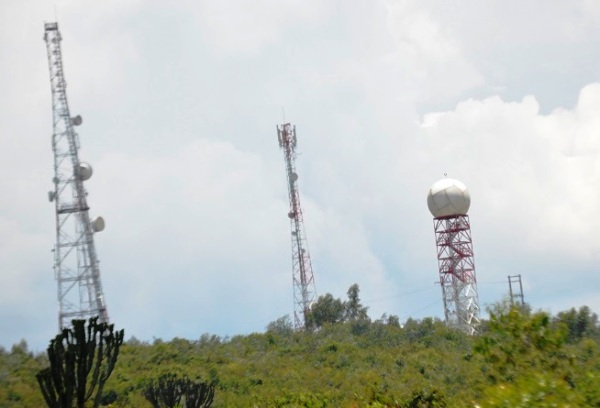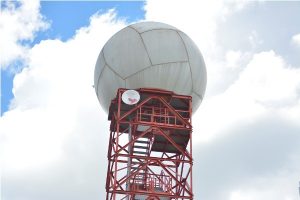
By Aimable Twahirwa;
Kigali: In Boneza, a remote rural village in Rutsiro district in Western Rwanda, Vedaste Habyarabatuma, a local potato grower, was not aware about how he could benefit from improved seasonal forecasts until he started receiving weather information as well as scheduled alerts via SMS.
Most of these weather updates were alerting the 52-year-old smallholder farmer to unexpected rainfall across parts of mountainous region in Western Rwanda, a region which is known to get normal to above normal rainfall, where large plots of farmland have always been destroyed by floods caused by heavy rains.
“Thanks to the newly introduced weather information via SMS messages, I am now able to make timely decisions and we are now able strengthen our resilience to weather variability,” the father of five said.
Currently Rwanda’s Meteorological Department issues regular forecasts in various formats ranging from daily, three, five, 10 days or monthly updates as well as advisories through the early warning system.
The new technology relies on an enhanced weather information system using the country’s sophisticated Doppler Weather Radar system, which is currently installed at Maranyundo, a small village in Bugesera, southeastern Rwanda.

Since May 2017, the new radar technology has been integrated within the existing meteorological infrastructure, such as automatic weather stations and satellite receivers, to provide early warning messages to people living in remote villages across the country and institutions which rely on accurate weather information.
It provides adequate information every seven minutes for end users, according to the Rwanda Meteorological Department.
These initiatives are part of the Weather and Climate Information Services for Africa (WISER) programme that was initiated in 2018 between Rwanda and the UK Met Office with other relevant stakeholders to enhance and scale up the co-production of climate services and impact-based early warning for improved climate-risk management in Rwanda.
The WISER programme aims to increase the use of reliable weather and climate services in decision making at regional, national, sectoral and community levels across sub-Saharan Africa.
But in Rwanda, the project was initiated at time farmers in various parts of the country had been complaining about damage to crops from heavy rains.
More specifically, it was designed to assist different stakeholders using weather information such as the farming community by providing information about rainy season to help improve decision-making on farms.
Its mandate also includes enhancing the capacity of local government and Meteo Rwanda to co-produce and use seasonal climate information for agricultural planning.
Leatitia Kankindi, who a farm at Kayove village, in Western Rwanda, said in the past years, farmers in this remote rural region used to face heavy rainfall that caused severe flooding and destroyed many crops on farms throughout the hillside regions
“But now, working with the meteorological services has improved farmers’ chances for agricultural success,” she said.
A joint effort by Rwanda Meteorological Department and a private mobile phone operator has served the pilot phase to supply weather information generated by Doppler radar to vulnerable farmers in remote rural villages across Rwanda. These daily updates have provided broad estimates, such as rainfall percentages for an entire district.
“The nod towards Doppler radar technology stems from the fact that unpredictable weather patterns have sometimes rendered traditional forecasts unreliable,” Mathieu Mbati Mugunga, a senior forecaster at Rwanda Meteorological Department told PANA in an exclusive interview.
The introduction of the Doppler radar system is part of Rwanda national initiative focusing on “Strengthening Meteo Rwanda’s Weather and Climate Services (SMRWCD)” to improve the range of weather and climate information.
The coordinator of SMRCWCD project, Livingston Byandaga, told says that the initiative has had a positive impact on use of weather and climate information to manage adverse effects of climate change.
“Thanks to these innovative tools, weather forecasting and early warning information have become much more specific and accurate to various end-users including smallholding farmers,” he said. (End)
This article was published with financial support of NECJOGHA/ WISER reporting project.
NECJOGHA (Network of Climate Journalists in the Greater Horn of Africa)
WISER (Weather and Climate Information Services for Africa)
